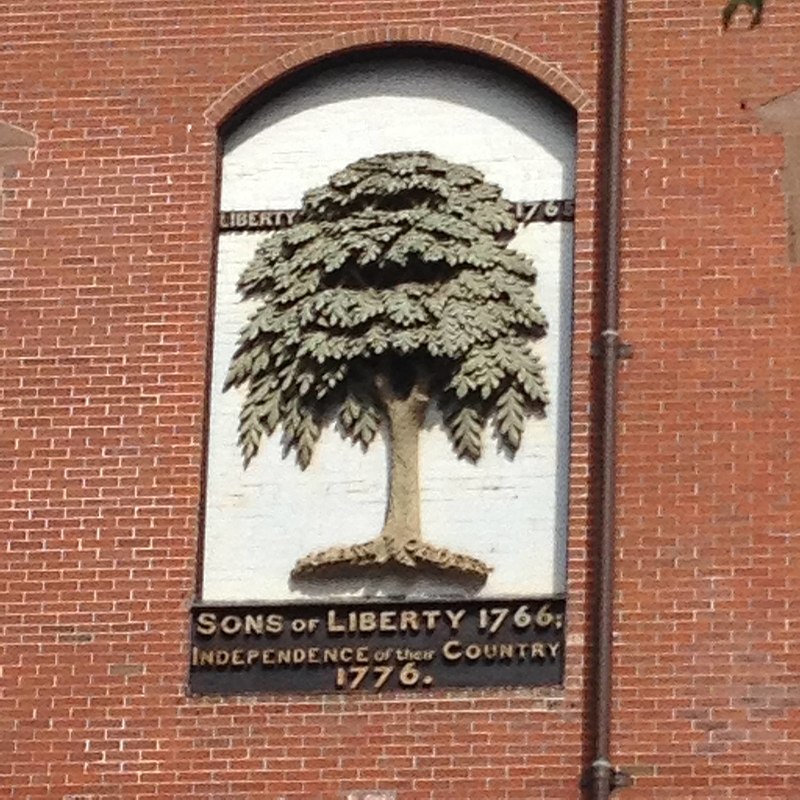Marker at the site where the Liberty Tree once stood
Liberty Tree site, Boston MA, USA

Boston History in a Minute: Liberty Tree
What is a liberty tree?
During the time period leading up to the American Revolution, a stately Elm tree on the Boston Commons served as a place to demonstrate dissatisfaction with British rule. On August 14, 1765, a band of discontented merchants and artisans hung an effigy in the tree to protest the Stamp Act. Hundreds of Boston citizens gathered under the tree to see the spectacle. After that, the tree became a symbol of objection to British policies. Complaints were posted on the tree’s trunk and the tree became an inspiration to other communities to establish their own Liberty Tree. When the Stamp Act was repealed in March of 1766, Bostonian's hung lanterns in the tree to celebrate. The tree continued to serve as an important place to demonstrate opposition to British actions until August 1775, when the tree was cut down by British troops. Though the Boston tree of the Revolution is gone, its symbolic presence is captured in the Liberty Tree at the American Revolution Museum at Yorktown.
Liberty Tree (1775)
In a chariot of light from the regions of day,
The Goddess of Liberty came;
Ten thousand celestials directed the way,
And hither conducted the dame.
A fair budding branch from the gardens above,
Where millions with millions agree,
She brought in her hand as a pledge of her love,
And the plant she named Liberty Tree.
The celestial exotic struck deep in the ground,
Like a native it flourished and bore;
The fame of its fruit drew the nations around,
To seek out this peaceable shore.
Unmindful of names or distinctions they came,
For freemen like brothers agree;
With one spirit endued, they one friendship pursued,
And their temple was Liberty Tree.
Beneath this fair tree, like the patriarchs of old,
Their bread in contentment they ate
Unvexed with the troubles of silver and gold,
The cares of the grand and the great.
With timber and tar, they Old England supplied,
And supported her power on the sea;
Her battles they fought, without getting a groat,
For the honor of Liberty Tree.
But hear, O ye swains, 'tis a tale most profane,
How all the tyrannical powers,
Kings, Commons and Lords, are uniting again,
To cut down this guardian of ours;
From the east to the west blow the trumpet to arms,
Through the land let the sound of it flee,
Let the far and the near, all unite with a cheer,
In defense of our Liberty Tree.
Fife and Drum Music of the Revolutionary War
"Eternal vigilance is the price of liberty."
by Thomas Jefferson
Get to know Thomas Jefferson—author of the Declaration of Independence - THE JEFFERSON PAPERS

No comments:
Post a Comment